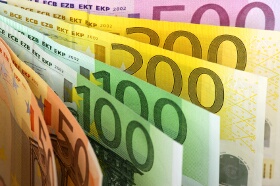The euro fell against the majority of most-traded currencies during this week as the European Central Bank hinted at a strong possibility of another round of monetary easing next month. There were few currencies that were even weaker than the euro, the Japanese yen and the Swiss franc among them.
The ECB has refrained from making changes to its monetary policy just yet. But ECB President Mario Draghi said during the press-conference that the central bank will review the policy in March and may change it. As monetary tightening looks all but impossible considering the current state of the eurozone economy, he clearly meant additional stimulus.
While the euro fell against most its major peers after the news, the yen and the franc were unable to beat the shared 19-nation currency as prospects for monetary easing from their respective central banks hurt the currencies as well. On the other hand, risk-related currencies firmed due to the rally of stocks and oil prices that followed the ECB announcement.
EUR/USD dropped 1.1 percent from 1.0920 to 1.0796 over the week — the lowest weekly close since November. EUR/GBP declined from 0.7658 to 0.7561 after rallying to 0.7755 during the week — the highest rate since January 14, 2015. EUR/JPY advanced from 127.56 to 128.30, bouncing from the weekly low of 126.17 — the lowest since April 14. EUR/CHF ticked up from 1.0926 to 1.0967.
If you have any questions, comments or opinions regarding the Euro,
feel free to post them using the commentary form below.
